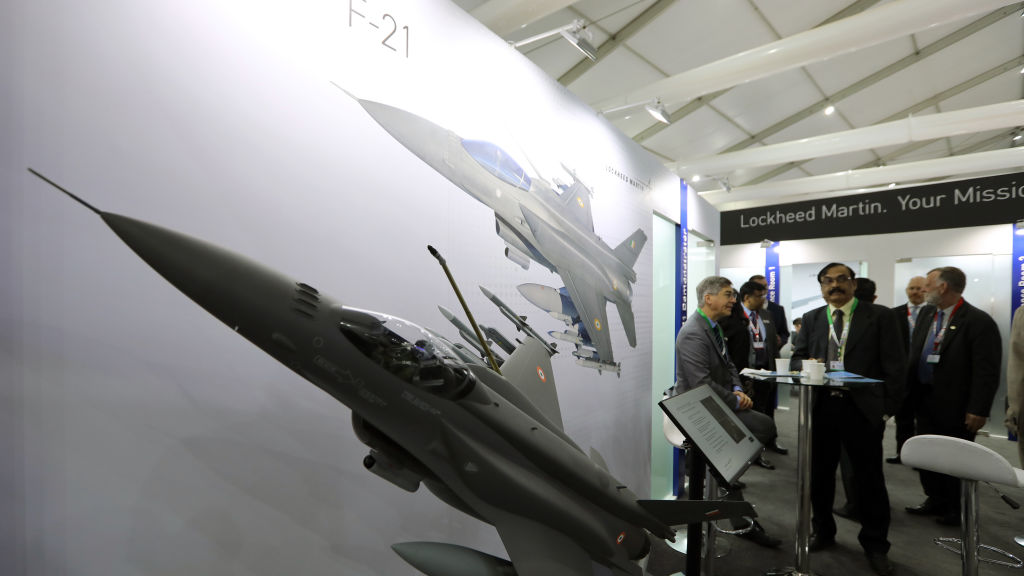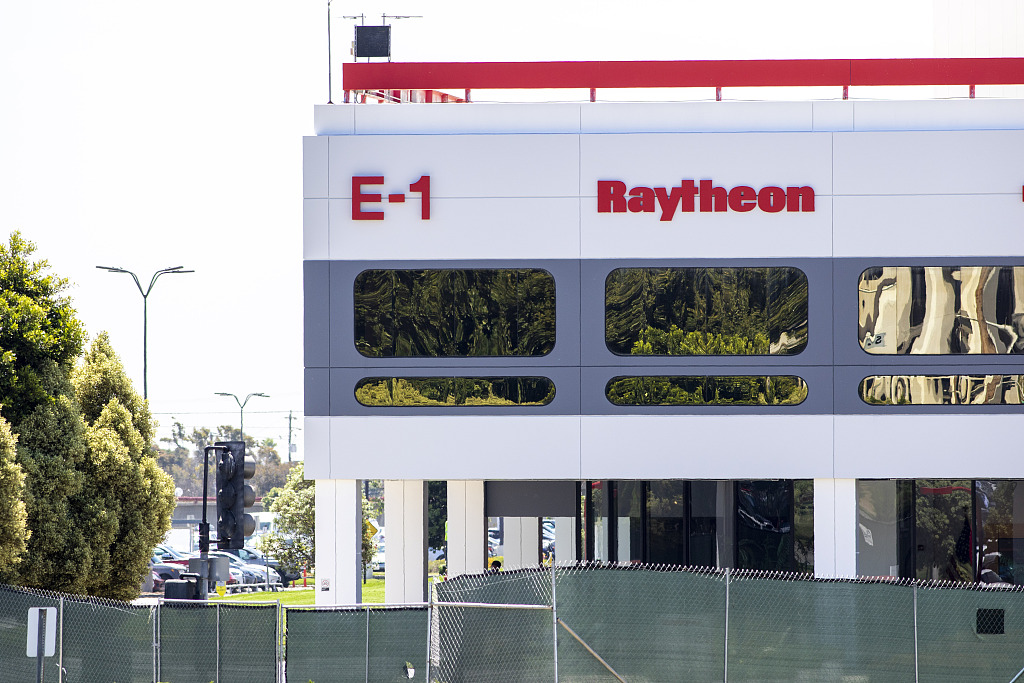
A model of the Lockheed Martin F-21 fighter jet displayed at the DefExpo 20 in Lucknow, Uttar Pradesh, India, February 6, 2020. /Getty
A model of the Lockheed Martin F-21 fighter jet displayed at the DefExpo 20 in Lucknow, Uttar Pradesh, India, February 6, 2020. /Getty
Editor's note: Bradley Blankenship is a Prague-based American journalist, political analyst and freelance reporter. The article reflects the author's opinions and not necessarily the views of CGTN.
Details emerging from the ongoing Russo-Ukrainian crisis make clear that it is, in fact, the United States and its client states in Europe that are making a frenzy over Ukraine.
In a largely ignored article, the Associated Press reported on January 25 that Ukrainian leaders are urging calm over the situation on the basis that "an invasion from neighboring Russia was not imminent." AP quoted Ukrainian Defense Minister Oleksii Reznikov as telling the country's parliament "there are no grounds to believe" Russia will invade soon.
"Don't worry; sleep well," he said. "No need to have your bags packed."
Likewise, President Volodymyr Zelensky urged the public to stay calm, and other high-level officials have been making rounds in the Ukrainian media with the same message.
For its part, Moscow has been consistent that it does not intend to invade Ukraine but will stand up for its national interest, namely keeping its neighborhood demilitarized, meaning that it does not want a NATO build-up in Ukraine. This is a situation that Russia has been warning the West about for over 30 years.
So the question is, why is the United States and its client states creating this panic?
There are many possible explanations. It could be that the administration of U.S. President Joe Biden is trying to distract the American public from its poor governance as it prepares for a tough mid-term election year while having an awful approval rating. It could also be that the U.S. realizes that its geopolitical ambitions are coming to an end and wants to try to stagger competition with one of its main adversaries, Russia, to focus elsewhere.
However, one thing is undeniable: The infamous American military-industrial complex is having a field day over not only this particular crisis but crises spurred by American aggression all over the world. Hence, the more accurate term is the chaos-industrial complex.
Lockheed Martin (LMT) has been trading up almost 11 percent over the past month, and Raytheon (RTX) is up 5.17 percent. Meanwhile, some stocks like General Electric (GE), Northrop Grumman (NOC) and Boeing (BA) were riding monthly highs but dipped about the time that Ukrainian officials started to urge calm over the situation.
The first two, who have so far come as out as winners from the globe's deteriorating security situation, actually acknowledged that the chaos benefits them.

Signage is outside the Raytheon Co. Space and Airborne Systems building in El Segundo, California, the U.S., June 10, 2019. /CFP
Signage is outside the Raytheon Co. Space and Airborne Systems building in El Segundo, California, the U.S., June 10, 2019. /CFP
Lockheed CEO James Taiclet told investors on a quarterly earnings call on January 25 that "there's renewed great power competition that does include national defense and threats to it," adding that his company needs "to be able to meet" the demand from what he expects will be higher defense spending in the future.
Raytheon CEO Greg Hayes went viral on social media over his comments on an earnings call the same day. He said his company is seeing "opportunities for international sales" from conflicts around the world.
"We just have to look to last week where we saw the drone attack in the UAE (United Arab Emirates), which have attacked some of their other facilities. And, of course, the tensions in Eastern Europe, the tensions in the South China Sea, all of those things are putting pressure on some of the defense spending over there. So, I fully expect we're going to see some benefit from it," Hayes said.
That these companies admit that war and chaos help their business model is not insignificant. Companies like Lockheed and Raytheon are kingmakers on Capitol Hill, being some of the largest special interest groups in the country, part of the public-private revolving door and have close ties with the military and Congress, as well as extensive media influence.
One has to wonder how such obvious corruption and conflict-of-interest can be legal in the United States, especially when it threatens global security. But it's also important to note that these same actors are backing lawmakers who sympathize with the January 6 Capitol rioters. That is to say that the chaos-industrial complex is actively supporting the political destabilization of the U.S. itself.
The dynamics of the chaos-industrial complex are another reminder that the U.S. is an inherently unstable, corrupt actor in world affairs that is death-spiraling into irredeemable decline. No sensible government should follow Washington's foreign policy line if a stable world order is the goal.
(If you want to contribute and have specific expertise, please contact us at opinions@cgtn.com.)

